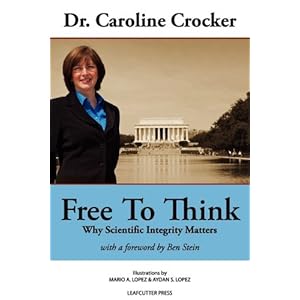Caroline Crocker, president of AITSE, will offer a guide to bunk detection at the American Scientific Affiliation meeting on Monday: Bunk Detecting Principles to Help the Public Assess “Scientific” Claims
The public is constantly bombarded with allegedly scientific claims. They are told that a particular supplement has been clinically proven to reduce cellular aging rate, that physicians endorse use of all kinds of drugs, and that scientists have proven we don’t have free will. The thoughts and actions of the public are molded by politically, religiously, and financially motivated, or just inaccurate, “science.”
We who are scientists have a grave responsibility to educate others on what science can, and does, say. But since experts are not always readily available (or right), we also need to empower the public to assess scientific claims for themselves.
In this presentation, a set of “bunk-detecting” principles will be introduced. These are rules of thumb that will help non-experts to evaluate claims made in the name of science. Most people have had some science education, therefore they are encouraged to think about if what is said is consistent with what they know and if the claims can be tested scientifically. They are advised to notice if the author declares something controversial to be a fact or asserts that they have accomplished something beyond what is possible to do. They are warned to beware of grandiose claims. They are instructed to be careful when too much is made of the scientific qualifications of those involved, or when those who do not agree with the “expert” views are disparaged.
Does infringement upon one of these rules automatically mean a claim is scientific bunk? No. Will the bunk detecting principles totally prevent abuse of science? No. But, with input from and refinement by ASA scientists, they might help.
Precisely because people today believe in science and find it important to our lives, separating the peaches from the pits is a game everyone must play.
See also Big news in peer review?: The Reproducibility Project
